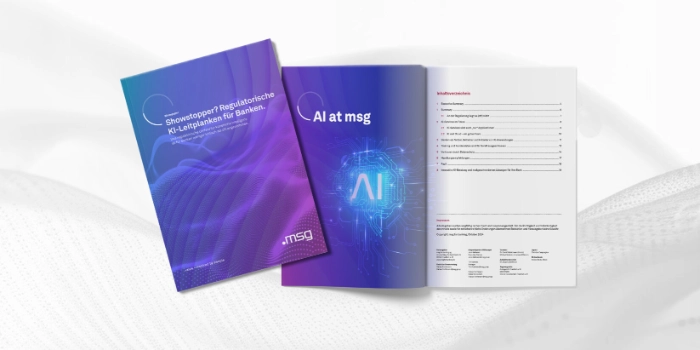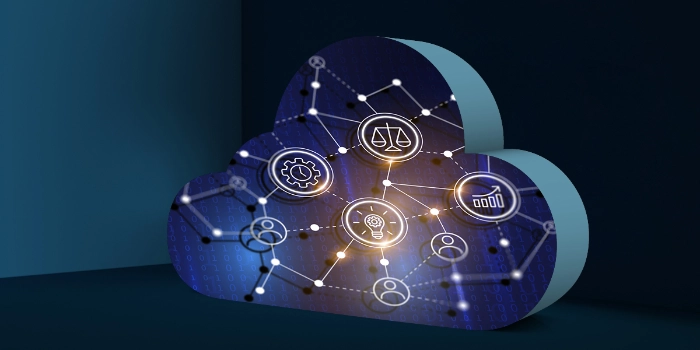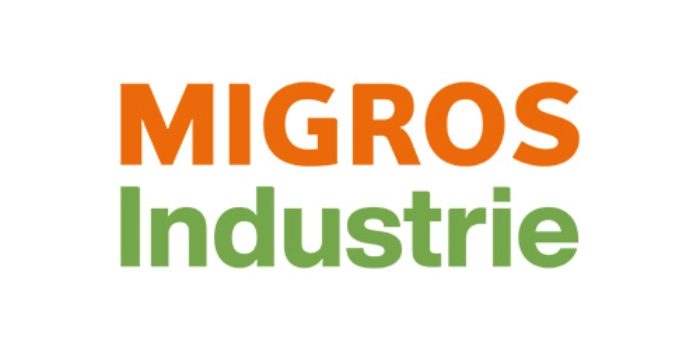

Resilience of a Democratic Community in the
Digital World
Werner Achtert on Strengthening Infrastructure, Governance, and Society at Digitaler Staat 2024
Keynote at Digitaler Staat 2024
We are currently living in very unsettled times, and against this backdrop, we are experiencing a strong focus on the topic of resilience in relation to the economic, political and now also military situation in Germany. Resilience describes “[...] the ability of social groups, local communities or entire countries to resist, absorb and deal with dangers and their consequences, and to reactivate and normalize fundamental structures and processes as quickly as possible”.
A resilient system – whether technical, biological or social – is able to withstand external challenges and ideally even emerges from a crisis stronger than before. The financial and economic crises of the recent past, the coronavirus crisis, the war in Ukraine and the conflicts in the Middle East have made us realize that our prosperity and the stability and predictability of our lives can no longer be taken for granted. This has led to uncertainty in politics, the economy and society and created a feeling of vulnerability.
Global interdependence has led to a geopolitical complexity whose interactions are difficult to predict. The digitalization of all areas of life is both a driver of this complexity and a means of mastering these complex interrelationships.
Digitalization has given us a multitude of information options, but at the same time we complain about being overwhelmed by information and find it increasingly difficult to assess its truthfulness.
So how can we ensure the resilience of our community? How can we prepare for crises, react appropriately to them and emerge from them stronger if possible? And what opportunities and risks does digitalization pose for resilience?
Large parts of our public life, our production processes, communication, logistics and the complete provision of public services require a functioning, largely digital infrastructure. Our electricity grids, water supply, mobile phone networks and even the electricity meters in our households are digitally controlled. Therefore, firstly, the technical resilience of our infrastructure is an essential basis for our community.
An striking example of the importance of digital infrastructure was the failure of Lufthansa's entire handling system in 2023 due to a damaged cable. In addition to such unintentional disruptions, there is an increasing threat of deliberate attacks on critical infrastructure such as hospitals, administrative buildings and universities. The most recent example being the attacks on submarine cables in the Baltic Sea.
Secondly, we need economic resilience to safeguard the material foundations of our state. Only with sufficient value creation is there sufficient leeway for shaping our polity, realizing our value system, ensuring the sustainable performance of our welfare state and, ultimately, maintaining the stability of our democracy.
In a world with global supply chains and dependencies, economic stability is a major challenge because a multitude of factors such as the availability of raw materials and intermediate products, logistics chains and digital control systems are beyond one's own sphere of influence. The resilience of companies that contribute to value creation is therefore also of great importance for the economic resilience of the state.
While it is in the interest of every company to be economically resilient, this also entails considerable costs. Companies will therefore base their investments in resilience on microeconomic considerations. However, the resilience of an entire economy cannot be based solely on microeconomic decisions; here, the state must intervene to safeguard overriding interests, such as the security of the supply of critical products such as medicines.
Thirdly, we need a resilient administration to ensure the fundamental tasks of the state, such as guaranteeing the rule of law, providing public services and ensuring social, internal and external security. The administration is usually organized hierarchically with clear responsibilities to fulfill its regular tasks. These bureaucratic structures are certainly useful and appropriate for the orderly execution of administrative tasks. In crisis situations, however, these fixed structures can be more of a hindrance because they set narrow limits on independent, flexible responses to changing conditions.
Government bodies must remain capable of acting even in crisis situations, adapt flexibly to changing conditions and – ideally – learn from past crises. The traditional bureaucratic model must be further developed for government action in the much-vaunted VUCA world – the acronym stands for “Volatility”, “Uncertainty”, “Complexity” and “Ambiguity”.
A digitally organized administration has indicators for the early detection of exceptional situations through an improved data situation and thus a better basis for decisions. The support of artificial intelligence can also relieve the administration of routine processes and create scope for more flexibility.
Ukraine provides an impressive example of the resilience of a digital administration. Large parts of the administration there work on a cloud-based system and are therefore still able to function despite the massive destruction of the infrastructure.
The societal resilience of a democratic community is based on the factors of infrastructure, economy and state administration, as mentioned above, and manifests itself in the resilience of its processes and institutions. An important prerequisite for this is trust in state decision-making processes and, based on this, broad acceptance of state decisions.
In a representative and deliberative democracy, decisions must not be made solely by majority voting and sometimes random consensus, but require an objective discourse. This includes balancing the diverse interests and opinions of our pluralistic, open society. Andreas Reckwitz characterizes this diversity as a “society of singularities.” These interests and opinions are presented with varying degrees of volume in the digital world and can lead to distortions in public perception if those who are best at using digital media articulate themselves the loudest and thus determine the direction of political discussion. Unfortunately, volume and reach are often more important than content for public perception.
In a democratic system, decisions should not only be made on the basis of political positions, but must also be appropriate to the subject matter, taking into account sound scientific evidence. Particularly when dealing with crises, difficult decisions often have to be made, the effects of which must be considered objectively and based on evidence.
In the digital world, sufficient data is available for many problems, even if it is not always provided at the expected speed and quality. However, in this digital world, the media also puts a great deal of pressure on decision-makers, which makes it difficult to deal with scientific facts appropriately. In addition, the scientific discussion is often conducted in the media instead of in the responsible committees. Thus, there is a risk that no proper decisions will be made when there is a high level of media pressure.
All discourse in a democracy is based on the possibility of freely informing oneself and freely expressing one's opinion. In the digital, globally networked world, messages have a greater reach and spread faster. This also applies to hate speech, insults and deliberate misinformation to influence public opinion. For the recipient, the author of a message is more difficult to identify and thus the quality of the content is more difficult to assess.

Existing laws against hate speech and defamation largely come from the analog world and are difficult to apply in the digital world. National regulations for controlling social networks shift state responsibilities to companies and are difficult to implement for globally active players outside their own territory. In February 2024, the Digital Services Act came into force in the European Union, which aims to partially address these issues. It remains to be seen what impact it will have.
Furthermore, there is an inherent conflict between freedom of expression and regulation: Who decides what is fake and what is permissible expression of opinion?
Increasing the density of regulation through new laws is popular with politicians because it allows them to show initiative. But to improve societal resilience, do we need new regulations for the digital space or just the consistent application of existing ones?
We should not be adapting the principles of our legal system to changing technologies on a daily basis. Given the speed of technical development compared to political processes, we can only lose this race. A resilient society must be guided by long-term principles in order to avoid falling into political actionism. A resilient society must be able to deal with crises without breaking apart and without abandoning its democratic principles. The issues of coronavirus and migration highlight the danger of a divided society.
Only digital literacy can help us to learn how to use digital media. We need informed citizens who participate in discourse in the digital world and form their own opinions independently. We need digital spaces for discourse in which citizens are heard and feel heard.
In addition to infrastructure and economic value creation, a resilient community needs an effective administration and social cohesion. This includes a political culture in which an open exchange of opinions is possible and democratic decisions are accepted. With digital technologies, we can connect, exchange information and opinions, and integrate people from different parts of our society.
At a colloquium in 2019, Henning Lühr, former state councillor of Bremen, asked whether we need a new form of statecraft for the digital world. Perhaps we don't have to go that far. I think it is enough to take our bearings from Kant, whose 300th birthday we celebrated in 2024: Have the courage to use your own reason!
And that must also be our aspiration in the digital world.



























